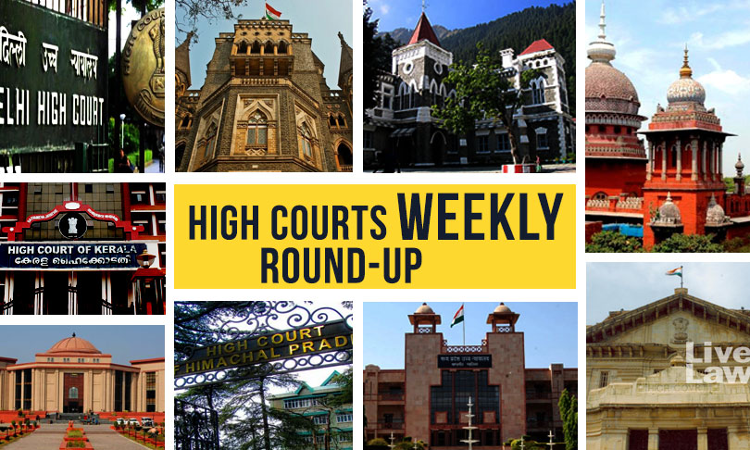High Courts Weekly Roundup (March 1 to March 7)
Akshita Saxena
8 March 2021 9:17 AM IST

Week commencing from March 1, 2021 till March 7, 2021
Next Story
8 March 2021 9:17 AM IST
Allahabad High Court 1. Establish Uttar Pradesh Educational Services Tribunal Only After Court's Permission: Allahabad High Court [In Re Constitution Of Education Tribunals] A Division Bench comprising of Chief Justice Govind Mathur and Justice Saurabh Shyam Shamshery ordered that its permission is needed before establishing the Uttar Pradesh Education Services Tribunal, which is...
